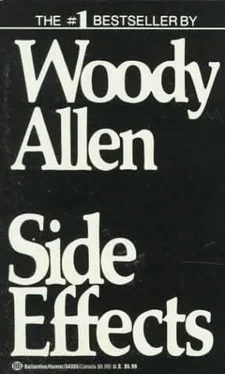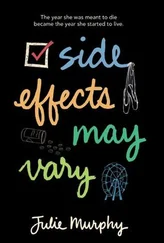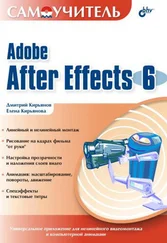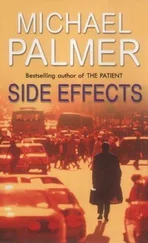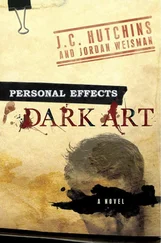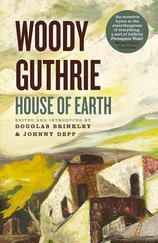My course of action was now obvious. Trader Vic's. Now there could be no crippling obstacles in our path. Though it would be somewhat awkward as I had been Connie's lover, it held none of the overwhelming difficulties of the past. We were now two free agents. My dormant feelings for Emily Chasen, always smoldering, ignited once again. Perhaps a cruel twist of fate ruined my relationship with Connie, but nothing would stand in the way of my conquering her mother.
Riding the crest of the large economy-size hubris, I phoned Emily and made a date. Three days later we sat huddled in the dark of my favorite Polynesian restaurant, and loose from three Bahia's, she poured out her heart about the demise of her marriage. When she got to the part about looking for a new life with less restraint and more creative possibilities, I kissed her. Yes, she was taken aback but she did not scream. She acted surprised, but I confessed my feelings toward her and kissed her again. She seemed confused but did not bolt from the table, outraged. By the third kiss I knew she would succumb. She shared my feelings. I took her to my apartment and we made love. The following morning, when the effects of the rum had worn off, she still looked magnificent to me and we made love again.
"I want you to marry me," I said, my eyes glazed over with adoration.
"Not really," she said.
"Yes," I said. "I'll settle for nothing less." We kissed and had breakfast, laughing and making plans. That day I broke the news to Connie, braced for a blow that never came. I had anticipated any number of reactions ranging from derisive laughter to outright fury, but the truth was Connie took it in charming stride. She herself was leading an active social life, going out with several attractive men, and had experienced great concern over her mother's future when the woman had gotten divorced. Suddenly a young knight had emerged to care for the lovely lady. A knight who still had a fine, friendly relationship with Connie. It was a stroke of good fortune all around. Connie's guilt over putting me through hell would be removed. Emily would be happy. I would be happy. Yes, Connie took it all in casual, good-humored stride, natural to her upbringing.
My parents, on the other hand, proceeded directly to the window of their tenth-story apartment and competed for leaping space.
"I never heard of such a thing," my mother wailed, rending her robe and gnashing her teeth.
"He's crazy. You idiot. You're crazy," my father said, looking pale and stricken.
"A fifty-five-year-old shiksa!?" my Aunt Rose shrieked, lifting the letter opener and bringing it to her eyes.
"I love her," I protested.
"She's more than twice your age," Uncle Louie yelled.
"So?"
"So it's not done," my father yelled, invoking the Torah.
"His girl friend's mother he's marrying?" Aunt Tillie yelped as she slid to the floor unconscious.
"Fifty-five and a shiksa," my mother screamed, searching now for a cyanide capsule she had reserved for just such occasions.
"What are they, Moonies?" Uncle Louie asked. "Do they have him hypnotized!?"
"Idiot! Imbecile," Dad screamed. Aunt Tillie regained consciousness, focused on me, remembered where she was, and passed out again. In the far corner, Aunt Rose was down on her knees intoning Sh'ma Yisroel.
"God will punish you, Harold," my father yelled. "God will cleave your tongue to the roof of your mouth and all your cattle and kine shall die and a tenth of all thy crops shall wither and…"
But I married Emily and there were no suicides. Emily's three children attended and a dozen or so friends. It was held in Connie's apartment and champagne flowed. My folks could not make it, a previous commitment to sacrifice a lamb taking precedence. We all danced and joked and the evening went well. At one point, I found myself in the bedroom with Connie alone. We kidded and reminisced about our relationship, its ups and downs, and how sexually attracted I had been to her.
"It was flattering," she said warmly.
"Well, I couldn't swing it with the daughter, so I carried off the mother." The next thing I knew, Connie's tongue was in my mouth. "What the hell are you doing?" I said, pulling back. "Are you drunk?"
"You turn me on like you can't believe," she said, dragging me down on the bed.
"What's gotten into you? Are you a nymphomaniac?" I said, rising, yet undeniably excited by her sudden aggressiveness.
"I have to sleep with you. If not now, then soon," she said.
"Me? Harold Cohen? The guy who lived with you? And loved you? Who couldn't get near you with a ten-foot pole because I became a version of Danny? Me you're hot for? Your brother symbol?"
"It's a whole new ball game," she said, pressing close to me. "Marrying Mom has made you my father." She kissed me again and just before returning to the festivities said, "Don't worry, Dad, there'll be plenty of opportunities."
I sat on the bed and stared out the window into infinite space. I thought of my parents and wondered if I should abandon the theatre and return to rabbinical school. Through the half-open door I saw Connie and also Emily, both laughing and chatting with guests, and all I could mutter to myself as I remained a limp, hunched figure was an age-old line of my grandfather's which goes "Oy vey."
(Following are excerpts from the soon to be published memoirs of Virgil Ives, who is currently serving the first of four consecutive ninety-nine-year sentences for various felonies. Mr. Ives plans on working with children when he gets out.)
Sure I stole. Why not? Where I grew up, you had to steal to eat. Then you had to steal to tip. Lots of guys stole fifteen per cent, but I always stole twenty, which made me a big favorite among the waiters. On the way home from a heist, I'd steal some pajamas to sleep in. Or if it was a hot night, I'd steal underwear. It was a way of life. I had a bad upbringing, you might say. My dad was always on the run from the cops and I never saw him out of disguise till I was twenty-two. For years, I thought he was a short, bearded man with dark glasses and a limp; actually, he was tall and blond and resembled Lindbergh. He was a professional bank robber, but sixty-five was the mandatory retirement age, so he had to get out. Spent his last few years in mail fraud, but the postal rates went up and he lost everything.
Mom was wanted, too. Of course in those days it wasn't the way it is now, with women demanding equal rights, and all. Back then, if a woman turned to crime the only opportunities open to her were blackmail and, once in a while, arson. Women were used in Chicago to drive getaway cars, but only during the drivers' strike, in 1926. Terrible strike. It lasted eight weeks, and whenever a gang pulled a job and ran out with the money they were forced to walk or take a cab.
I had a sister and two brothers. Jenny married money. Not an actual human being-it was a pile of singles. My brother Vic got in with a gang of plagiarists. He was in the middle of signing his name to "The Waste Land" when the feds surrounded the house. He got ten years. Some rich kid from a highfalutin family who signed Pound's "Cantos" got off on probation. That's the law for you. Charlie-that's my youngest brother-he's been a numbers runner, a fence, and a loan shark. Never could find himself. Eventually he was arrested for loitering. He loitered for seven years, till he realized it was not the kind of crime that brought in any money.
The first thing I ever stole was a loaf of bread. I was working for Rifkin's Bakery, where my job was to remove the jelly from doughnuts that had gone stale and transfer it to fresh goods. It was very exacting work, done with a rubber tube and a scalpel. If your hands shook, the jelly went on the floor and old man Rifkin would pull your hair. Arnold Rothstein, who we all looked up to, came in one day and said he wanted to get his hands on a loaf of bread but he absolutely refused to pay for it. He hinted that this was a chance for some smart kid to get into the rackets. I took that as a cue, and each day when I left I put one slice of rye under my coat, until after three weeks I had accumulated a whole loaf. On the way to Rothstein's office, I began to feel remorse, because even though I hated Rifkin his wife had once let me take home two seeds from a roll when my uncle was dying. I tried to return the bread, but I got caught while I was trying to figure out which loaf each slice belonged to. The next thing I knew, I was in Elmira Reformatory.
Читать дальше
